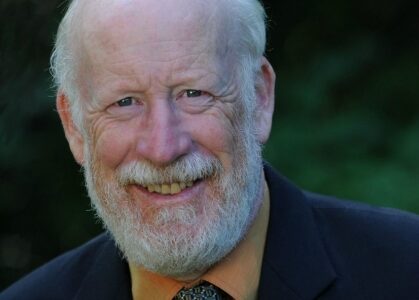Canada: Homeland or 'Hotel'?
Reflections on Rejecting one’s homeland
What do Canadians want from their country?
“ …I am quite taken by the wisdom in someone’s (wish I could remember who) diagnosis of Canada: “Canada is a hotel.” The observer makes a point I find profound, persuasive, and sad. This country is for individuals who want to make a fortune and not feel beholden to any old idea of a national community. A person from any country, who can bring some family members, a good starting sum of capital, and a great work ethic. A person who will rise in the social pyramid. Such people will use Canada as their hotel. They will live here and thrive. Life will be for making personal progress and amassing material and whatever else the individual desires. It will not be for any collective purpose. The occupant of a hotel is not hoping to improve the lot of other hotel residents, and Canadians are – as more than one observer has said – quite deficient in collective feelings. Canadianism is not about loyalty to an ideal of Canada and its values. We are wonderfully globalist and post-modern, say some. I do not think us wonderful. I think we do not have much idea of what is worth preserving or fighting for….. “
I wrote this one year ago. It is still valid, for me, even more than it was a year ago, in these days when politicians regularly use the phrase “Canadian values” and the meaning of multiculturalism, and the tolerance of differences, are so much talked about.
Writers and talking heads collide with opinions that some things are not to be allowed in our country – face veils at certain venues, for example – and the meaning of Canada and Canadianism is very much a puzzle and a challenge. What does being Canadian “stand for” in the realm of values and cultural norms?
Leaving Canada for the Caliphate
Anyone paying attention to news knows that younger people have been leaving Canada, and other Western nations, to go to Iraq and Syria to join Islamic State (IS) forces. Why they give up the culture, the affluence, the ease, of life in a rich nation, to go and fight for a very alien culture, is a mystery social psychologists and security police want to solve. Curious people of all sorts want answers to this puzzle; I want to understand.
Conversion to Islam is a start for the emigrants, if they are not already Muslim. Earnest imams and other official representatives of Islam in the West try valiantly to refute the idea that the mere practice of Islam means being radical, militant, a wannabe-fighter in a jihadi war against the USA, NATO or just against “Western civilization.”
I accept the truth of their protestations that Islam is not in itself hostile to the modern, secular Western way of life of Canadians. It is not worship of Allah, nor the Koran, that makes a person unable to accept life in the West.
Why do people reject the life they know here, for one they know only from media and not from experience? Why is a life waging war, life where patriarchy orders the hierarchy of men and women, and where the law is medieval in interpreting religious dogma, attractive to one who has experienced Western ways?
Why is generous freedom for individual choice traded for conformity with a collective social straitjacket? What is the appeal of there as opposed to here?
Unhappy in the land of plenty of choices
Ignorance of what is there, must figure among our explanations. The emigrant to IS lands simply does not know what he or she has chosen. Their image of life there is sadly fuzzy but the fantasy of a better way to live is sufficient. If and when one finds out the new life is not at all what one wished, getting back out is likely very much harder than getting in. So we can start with a woeful lack of knowledge and imagination as one explanation.
But some of these emigrants, probably the majority, are content to stay there after their choice is made. Young women know sufficient about their fate in IS to make the choice for submission to patriarchy and rejection of personal freedoms won by feminism in the West.
“I was a typical Canadian, I played hockey, I played my guitar with friends…” So goes one video clip of a young man with a thin beard in his propaganda pitch to other Canadians who might want to do as he did, to become a warrior for a certain view of Islam.
Islam in the year 700 or 1000 CE, when the Caliphs reigned over vast territories from Damascus or Baghdad, when Arab-Muslim armies triumphed over all their foes, is the fantasy the forces of IS fight to restore. But what is life like inside such an Islamic State? What is life going to be when one agrees to accept its blueprint for a good and godly civilization?
One concrete detail of this new order : execution of criminals by beheading them with a sword, in very public displays, and the stoning of women. Residents of Saudi Arabia know this type of justice already, and the Saudis are allies of Canada to whom we sell military equipment.
The foreign minister of Sweden has been attacked in the Saudi press – an unfree press, of course, in a state based on Wahabbi Islam – for her criticism of Saudi shariah law. The Saudis say she is insensitive to cultural differences and varied standards of law. She rejects that, rightly.
We know the IS do not enforce a unique legal regime, in the Middle East; older nation-states around it already have rigid ideas of proper ways to execute violators of shariah law. We might be appalled by the execution practices of such lands, but until IS became hostile to NATO and the UN, we paid little attention to this brutal capital punishment in lands where Islamic law of a medieval sort is still the norm.
Life among the seriously-alienated
I want to know the inside of the mind of a man or woman who rejects Canada’s ways so thoroughly they must get out of Canada. “Love it or leave it” is their credo, apparently.
Is life filled with the array of lifestyles, material consumables, cultural individualism, that Canada can boast, inferior to life in the proposed Caliphate? For some people the answer is yes; life here is not meaningful or fulfilling.
For a faithful believer in the IS vision, Canadians’ choices are more apparent than real, and life in IS is attractive for its simplicity. Serve God, worship Him, lead your life as the Koran instructs, do as the teachers and judges of Islam tell you to do, and be content; your life of obedience is pleasing to God and will result in your admission to paradise after death.
There are Jews and Christians who share this fundamental perspective on how to be righteous in life with the Muslims of IS. Sure, the sacred books are different, the names of the holiest forces and figures are different, but the foundation of life is the same: obedience to a set of rules and acceptance of a creed. This is what the Abrahamic faiths – Judaism, Christianity, and Islam, share.
It seems possible for many, many people of these three faiths to live inside the fabric of a modern nation like Canada and the USA and still manage to live righteous lives by rejecting much of what is offered by materialist, capitalist, secular society. Living in ways laid down by your religious faith, not assertively trying to make other people live as you do, is a “quietist” way to live religiously. Quakers, Amish, Mennonites, Hasidim, give examples of such ways.
Not all who adhere to their religion faithfully are quietists, however, as we know so very well. In the USA, Christians are very much a political force in issues like reproductive rights, gun laws, education, the economy, the environment, foreign policy, and other questions, with their very particular idea of what God intends for the USA to be and what Americans ought to do. “One Nation under God” and “In God we Trust” are quintessentially American slogans in politics.
Can you ‘be the change’?
Canada has far fewer passionately-driven Christians active in public debate, but with Stephen Harper as our P.M., we hear more such views expressed than we used to, from a conservative Christian perspective. For example in the debate over euthanasia and the right to die, Christians are vocal and motivated in Canada.
Our Prime Minister has distinguished himself by saying “God bless Canada” on occasion. Being a pious Christian and activist citizen are compatible here, minus some of the violence that Americans seem prone to.
Israel is the state where one best can observe the effect of very conservative Jews at work in the political system, in issues unlike those that mobilize Christians in the USA. Their extremism in defence of dispossessing and disempowering Arabs is racist by my scales of justice.
Are there no Muslim lands where a faithful Muslim conservative with “fundamentalist” views can live a righteous life, either in retreat from public issues or as an activist in political causes?
For the believers in the IS vision of a Caliphate, states like Saudi Arabia or Iran, with their Muslim codes of law and authoritarian and despotic government structures, are not accepted as lands where a Muslim can live a righteous life. The Saudi kings, despite their Wahhabi religious-legal order, have allowed American capitalism and wealth to corrupt the pure Islamic state that the Caliphate projects for future perfect social order. Pakistan and Indonesia are similarly corrupted. The ideal Islamic state that IS promises does not exist yet.
In 1979, a theocracy was established by revolution against the Shah of Iran. But for the majority of Muslims, who are Sunni, the Islamic Republic of Iran can never be accepted as a land where Islam is enshrined as the order of life; the Shiite order in Iran is anathema to Sunni Muslims. This is an old, old divide in Islam going back to a time not long after the death of the Prophet Muhammed.
No single answer
The reasons some Canadians would rather live in the state of the medieval Muslim Caliphs and not in 21st century Canada are not, in the final analysis, going to be generalized into a formula. Each person who makes that choice makes it in the privacy of their own psyche. This leads me to treat the phenomenon not as a social or political issue but as a personal and psychological one.
People can dislike a great deal about Canada and yet still live here and manage to go on being a citizen. They can live with the imperfections of our society, politics, economy, and culture.
My first paragraph above, quoted from an earlier column, alerts readers to the fact that I think Canada has profound problems as a nation. Multiculturalist theory is not working out well in practice, in my opinion. A nation without some sense of its deepest roots in European history, in Christianity, and in British politico-legal and cultural ways, is a nation adrift, I would argue.
Leaving is an extreme response to discontent. Activism — to fight things one does not like here — is more often the choice people make, rather than leave: join a cause, a movement or party, and try to influence policies and culture. This is more likely the response of a person who wants, say, a Christian or feminist Canada. Like myself, a socialist and environmentalist.
I reject much of what seems “typical” and “mainstream” in Canadian life today, and I particularly feel out of harmony with the kind of Canada that Stephen Harper wants to blueprint. He has support; if it is majority support, then I am badly out of step with my compatriots.
But I will continue to live here and not in some socialist democracy like one of the Scandinavian nations, because I find a way to live within Canada by creating a circle of like-minded people with whom I am comfortable, and keep at bay the things I do not choose to be part of my life. I fight my causes with legal means, civil disobedience, writing, teaching.
Staying here to wage war
The worst type of response to discontent with Canada is stay here and be violent in the pursuit of some cause; anarchists once did that in Europe and North America before WWI, and Maoists and Weathermen were prepared to use violence against the State in the 1960’s and ‘70’s. Many acts of violence in the West now are perpetrated by self-proclaimed jihadis.
John Nuttall and Heather Korody are pathetic examples of such people, and ought not to suffer great punishment for their sad attempt at a Canada Day plot at the Victoria Legislature. They were helped far too much by undercover agents; drug addicts with mental disabilities cannot mount a serious threat without help.
But the murders of two soldiers by self-identified jihadists in central Canada are real and do require us to protect ourselves from the violence of the seriously alienated among us, who take up Islamic fanaticism as their cloak for action against people they do not want to live among.
To me it is perfectly clear that their stated ideology is not truly the deepest cause of violence.
There are other violent people whose acts of murder are not in the least motivated by Islam. The pilot who killed 149 people along with himself in the crash of a plane in the French Alps had no political agenda. Anders Breivik in Norway was a neo-Nazi when he killed dozens of people. The Moncton killer of RCMP had no ideology. Men who shoot several people in single acts of rage for no dogmatic cause, are not rare. The list could easily go on.
Conclusions:
People who cannot live with a degree of contentment in one place, and leave to go where they think they will be more in harmony with the people and way of life, should go.
I would not waste Canadian resources to stop them leaving. I would not want them to come back easily if they had been at war while they were away; to screen out such people, I would generously expend our security resources.
Very emphatically, I would halt Stephen Harper’s policy of thrusting Canada’s armed forces into war zones for his ideological ends. Not because he provokes unbalanced people in Canada, like Nuttall, to use terrorist means to protest Canada’s attack on Islam — but because the policy is simply wrong.
Easy for Harper, apparently, to say “Canada is at war on jihadi terrorism” and send our military to show he means to force his view of reality on the rest of us. Easy for the mentally-compromised to justify acts of violence in Canada as their way of fighting Canada on behalf of Islam. We do not have to let this version of reality be true.
We begin by stopping the Harperite formula for making Canada “great” on the international stage by loudly proclaiming we are making war and standing up to Russia or Iran or some other villain. We do not take an ideological stance or claim to be some “champion of human rights” or “role model and teacher of democracy.”
Canada is not the USA or Britain or France. We do not interfere, as an imperial power does, in the internal affairs of other people. Especially, we do not fight insurgencies or take one side in a civil war. The Afghan Mission was a mistake we must never repeat.
We offer peace-making and diplomacy, not war-making and bombast. The sooner we get back to the foreign-policy traditions of liberal internationalism as practiced by our governments in the 1960’s and ‘70’s, the sooner Canadians will be acting in the world as we should.
Once again, my opinion is out of step with my compatriots who have been polled and assert their support for Harper’s war against IS. Will I leave Canada because my fellows have views so inimical to mine? No. I will stay.
I will try to change their minds, not hurt their bodies or properties.

























